DUKE ELLINGTON / “Autumn Leaves”
Being the good ol’ American that I am, and having many of the requisite prejudices, I’d always assumed that “Autumn Leaves” was an American song. When I discovered that Johnny Mercer (“Satin Doll,” “Skylark,” “Moon River,” “P.S. I Love You,” etc., etc.) wrote the lyrics, I wasn’t surprised. But then I found out Mercer had actually re-written the lyrics – the original lyrics are in French and the original music was composed by one Joseph Kosma, a Hungarian exile living in France. Now, that was surprising. Since then, I’ve collected a lot of great versions of “Autumn Leaves,” in both English and French.
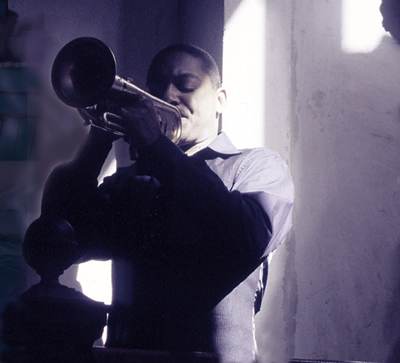 Let’s begin though with some instrumental takes on the tune. First up is Wynton Marsalis’ high-speed hard bop version which he released back in 1987 along with his working band of Marcus Roberts (piano), Robert Hurst (bass) and Jeff ‘Tain’ Watts (drums). Say what you want about Wynton (regressive, rigid, repetitive…and that’s just the R’s), one thing the man can do is play his ass off. On “Autumn Leaves,” his technique is as impeccable as always, but this is Marcus Roberts’ show. Marcus’ solo material features a more laid back and thoughtful pianist, one not afraid to let notes hang and silences sit. But Marcus Roberts circa 1987 was a firebrand, throwing whole handfuls of notes this way and that. After a dynamic solo from Marcus that takes up almost the entire six-minute running time, Wynton returns to restate the theme and they’re out.
Let’s begin though with some instrumental takes on the tune. First up is Wynton Marsalis’ high-speed hard bop version which he released back in 1987 along with his working band of Marcus Roberts (piano), Robert Hurst (bass) and Jeff ‘Tain’ Watts (drums). Say what you want about Wynton (regressive, rigid, repetitive…and that’s just the R’s), one thing the man can do is play his ass off. On “Autumn Leaves,” his technique is as impeccable as always, but this is Marcus Roberts’ show. Marcus’ solo material features a more laid back and thoughtful pianist, one not afraid to let notes hang and silences sit. But Marcus Roberts circa 1987 was a firebrand, throwing whole handfuls of notes this way and that. After a dynamic solo from Marcus that takes up almost the entire six-minute running time, Wynton returns to restate the theme and they’re out.
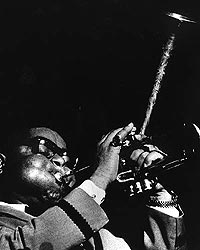 Here’s another straight-ahead jazz version. It’s Oscar Peterson and Dizzy Gillespie from their duet album. Dizzy’s intro and solos are sweet, but once again, it’s the piano man’s show.
Here’s another straight-ahead jazz version. It’s Oscar Peterson and Dizzy Gillespie from their duet album. Dizzy’s intro and solos are sweet, but once again, it’s the piano man’s show.
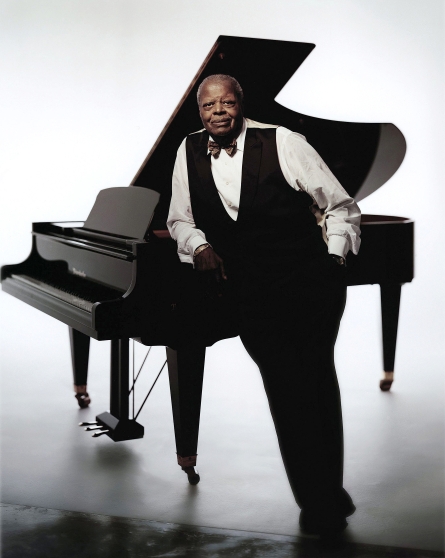 Oscar Peterson's right hand is unbelievable. Sometimes it sounds like he’s got two or three extra fingers – he can make those black and white keys do anything he wants them to do. Two things to note about this version: one, there’s no band – just Dizzy and Oscar; two, if you listen closely, you can hear Oscar keeping time by tapping his foot on the floor through almost the entire piece. These cats are old school, and old school cats have to have that rhythm.
Oscar Peterson's right hand is unbelievable. Sometimes it sounds like he’s got two or three extra fingers – he can make those black and white keys do anything he wants them to do. Two things to note about this version: one, there’s no band – just Dizzy and Oscar; two, if you listen closely, you can hear Oscar keeping time by tapping his foot on the floor through almost the entire piece. These cats are old school, and old school cats have to have that rhythm.
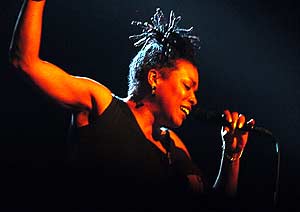 The first vocal version is by Dee Dee Bridgewater, although I have to say I’m feeling the band on this one more than Dee Dee’s vocals. The tune was recorded in Paris and the entire band (none of whom I’ve heard previously) is French. I don’t know who did the arrangement of this cover, but it makes several references to better known versions of the song. Dee Dee sings the first verse in French before switching to English (like Piaf) and at the end of the tune, the band imitates the famous intro/outro from Cannonball’s classic version.
The first vocal version is by Dee Dee Bridgewater, although I have to say I’m feeling the band on this one more than Dee Dee’s vocals. The tune was recorded in Paris and the entire band (none of whom I’ve heard previously) is French. I don’t know who did the arrangement of this cover, but it makes several references to better known versions of the song. Dee Dee sings the first verse in French before switching to English (like Piaf) and at the end of the tune, the band imitates the famous intro/outro from Cannonball’s classic version.
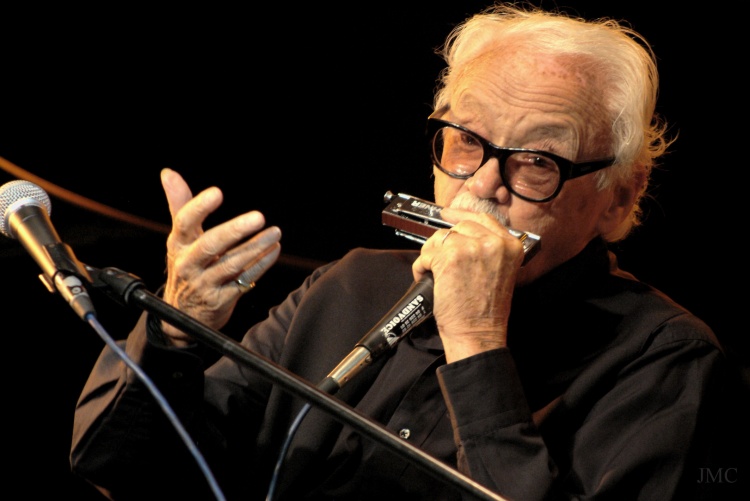 Next is a very untraditional cover by Toots Thielemans. I remember an evening quite a few years ago where I was lucky enough to see some older jazz musicians playing after hours, just for themselves. Instead of attempting specific songs, they played around with half-remembered melodies, sometimes repeating, sometimes improvising, sometimes even playing over one another. Toots’ version of “Autumn Leaves” sounds like that. At one point, Toots is soloing on both harmonica and guitar while Marc Johnson (bass) is playing a solo of his own. That sounds like it’d be some wild avante-garde type thing, but it’s not. It’s gentle, intelligent and very, very pretty.
Next is a very untraditional cover by Toots Thielemans. I remember an evening quite a few years ago where I was lucky enough to see some older jazz musicians playing after hours, just for themselves. Instead of attempting specific songs, they played around with half-remembered melodies, sometimes repeating, sometimes improvising, sometimes even playing over one another. Toots’ version of “Autumn Leaves” sounds like that. At one point, Toots is soloing on both harmonica and guitar while Marc Johnson (bass) is playing a solo of his own. That sounds like it’d be some wild avante-garde type thing, but it’s not. It’s gentle, intelligent and very, very pretty.
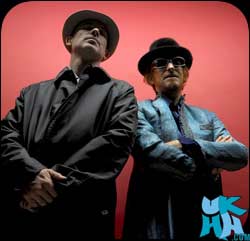 Speaking of nontraditional, I had to include at least one modern version. It’s by the UK duo Coldcut (who hip-hop heads might remember as the cats who did that monster remix of Eric B. & Rakim’s “Paid In Full” way back when) as remixed by a crew named The Irresistible Force. I didn’t care much for Coldcut’s original vocal version because the singer isn’t all that strong, but I love this remix. The echoing keyboard effects actually do sound like falling leaves. (If that were possible.) Coldcut’s remixed version is nine minutes long but the only vocals are that one famous phrase from the English-language version: “I miss you most of all, my darling / When autumn leaves start to fall.” My copy of the song is from Nick Warren’s Back To Mine mix CD, but you can find this on any number of chillout collections.
Speaking of nontraditional, I had to include at least one modern version. It’s by the UK duo Coldcut (who hip-hop heads might remember as the cats who did that monster remix of Eric B. & Rakim’s “Paid In Full” way back when) as remixed by a crew named The Irresistible Force. I didn’t care much for Coldcut’s original vocal version because the singer isn’t all that strong, but I love this remix. The echoing keyboard effects actually do sound like falling leaves. (If that were possible.) Coldcut’s remixed version is nine minutes long but the only vocals are that one famous phrase from the English-language version: “I miss you most of all, my darling / When autumn leaves start to fall.” My copy of the song is from Nick Warren’s Back To Mine mix CD, but you can find this on any number of chillout collections.
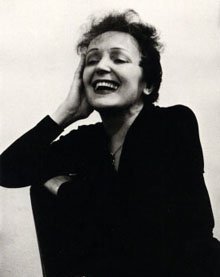 Let’s quickly check out two classic vocal takes on “Autumn Leaves.” The first is by Edith Piaf and the second comes courtesy of Nat ‘King’ Cole. Both of these covers are in that overwrought, highly orchestrated style made famous by black-and-white Hollywood movies.
Let’s quickly check out two classic vocal takes on “Autumn Leaves.” The first is by Edith Piaf and the second comes courtesy of Nat ‘King’ Cole. Both of these covers are in that overwrought, highly orchestrated style made famous by black-and-white Hollywood movies.
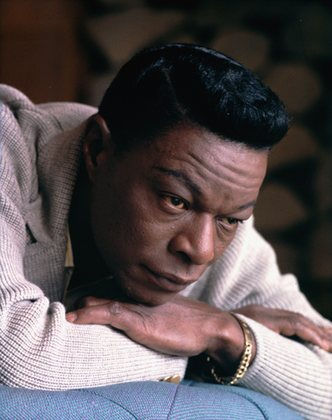 In fact, when I listen to these, I see a tragic montage in some mystery thriller (Piaf) or international romance (Cole). By today’s standards, these versions may be slightly cheesy but they’re also bonafied classics and I can’t help but like them both.
In fact, when I listen to these, I see a tragic montage in some mystery thriller (Piaf) or international romance (Cole). By today’s standards, these versions may be slightly cheesy but they’re also bonafied classics and I can’t help but like them both.
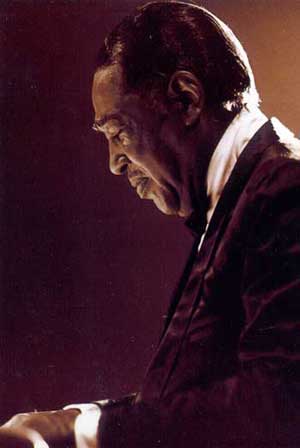 The feature version is by the great Edward ‘Duke’ Ellington featuring Ray Nance on violin and Ozzie Bailey on vocals. It’s hard to even come up with words to describe this one. There’s just something about the Duke. Here, he uses the sparsest of sounds – a dry, distant drum; a just-barely-there piano; Bailey’s rich vocals; and most of all, Nance’s heart-piercing violin – to create a true sonic wonder. The record is full of blank spaces and implications, and in the end, the tune comes out meaning much more than it should. What I’m trying to get at is, all the other versions are about romance. This one is…well, I don’t know, actually. “More than we mere mortals deserve” is how one Duke appreciation site put it and I really can’t argue with that.
Hardcore jazz fans are no doubt wondering what happened to the all-time best version of “Autumn Leaves” (with apologies to the Duke, of course), Miles Davis and Cannonball Adderley’s cover from Cannonball’s Somethin’ Else album. Just know this: on their version of the tune, Miles and Cannonball practically define the term ‘swing.’ It’s also one of the best pieces of jazz balladeering I’ve ever heard, bar none. So why isn’t it in the jukebox? First, because we’ve already featured it and second because the jukebox is about as overstuffed as it’s ever been (and the Miles/Cannonball version is eleven minutes long).
Two other items of note. Listen carefully to each intro. One of the curious things about “Autumn Leaves” is that every interpreter seems to feel obligated to include the intro, but there are several different ways people like to play it. Of course, Miles and Cannonball take the whole intro thing into a different realm – they practically make a new song out of it.
Second, note that the French lyrics and English lyrics are very different. Mercer made no attempt to translate the original. Mercer’s lyrics are a bit forlorn but still romantic. The orginal lyrics, by French poet Jacques Prévert, are less pleasant and much, much longer. By the way, the literal translation of the original title “Les Feuilles Mortes” is “The Dead Leaves.” That creates a slightly different vibe than the more innocuous “Autumn Leaves,” no?
Click this link to check out the lyrics as Prévert originally wrote them (along with the English translation) then compare that with Mercer’s compact and understated rewrite:
The feature version is by the great Edward ‘Duke’ Ellington featuring Ray Nance on violin and Ozzie Bailey on vocals. It’s hard to even come up with words to describe this one. There’s just something about the Duke. Here, he uses the sparsest of sounds – a dry, distant drum; a just-barely-there piano; Bailey’s rich vocals; and most of all, Nance’s heart-piercing violin – to create a true sonic wonder. The record is full of blank spaces and implications, and in the end, the tune comes out meaning much more than it should. What I’m trying to get at is, all the other versions are about romance. This one is…well, I don’t know, actually. “More than we mere mortals deserve” is how one Duke appreciation site put it and I really can’t argue with that.
Hardcore jazz fans are no doubt wondering what happened to the all-time best version of “Autumn Leaves” (with apologies to the Duke, of course), Miles Davis and Cannonball Adderley’s cover from Cannonball’s Somethin’ Else album. Just know this: on their version of the tune, Miles and Cannonball practically define the term ‘swing.’ It’s also one of the best pieces of jazz balladeering I’ve ever heard, bar none. So why isn’t it in the jukebox? First, because we’ve already featured it and second because the jukebox is about as overstuffed as it’s ever been (and the Miles/Cannonball version is eleven minutes long).
Two other items of note. Listen carefully to each intro. One of the curious things about “Autumn Leaves” is that every interpreter seems to feel obligated to include the intro, but there are several different ways people like to play it. Of course, Miles and Cannonball take the whole intro thing into a different realm – they practically make a new song out of it.
Second, note that the French lyrics and English lyrics are very different. Mercer made no attempt to translate the original. Mercer’s lyrics are a bit forlorn but still romantic. The orginal lyrics, by French poet Jacques Prévert, are less pleasant and much, much longer. By the way, the literal translation of the original title “Les Feuilles Mortes” is “The Dead Leaves.” That creates a slightly different vibe than the more innocuous “Autumn Leaves,” no?
Click this link to check out the lyrics as Prévert originally wrote them (along with the English translation) then compare that with Mercer’s compact and understated rewrite:
The falling leaves drift by the window The autumn leaves of red and gold I see your lips, the summer kisses The sunburned hands I used to hold Since you went away, the days grow long And soon I'll hear old winter’s song But I miss you most of all, my darling When autumn leaves start to fallGet your versions here:
- Wynton Marsalis – From Marsalis Standard Time, Vol. 1 (1987, Columbia)
- Oscar Peterson & Dizzy Gillespie – From Oscar Peterson & Dizzy Gillespie (1974, Pablo)
- Dee Dee Bridgewater – From Keeping Tradition (1993, Verve)
- Toots Thielemans – From Do Not Leave Me (1987, Milan)
- Coldcut – Available on Back To Mine: Nick Warren (1999, Ultra)
- Edith Piaf – Available on 30th Anniversaire (1994, Capitol; original release date unknown)
- Nat ‘King’ Cole – From Nat King Cole Sings For Two In Love (1955, Capitol); Available on Nat ‘King’ Cole - Love Songs (1993, Capitol)
- Duke Ellington – From Ellington Indigos (1958, Columbia)
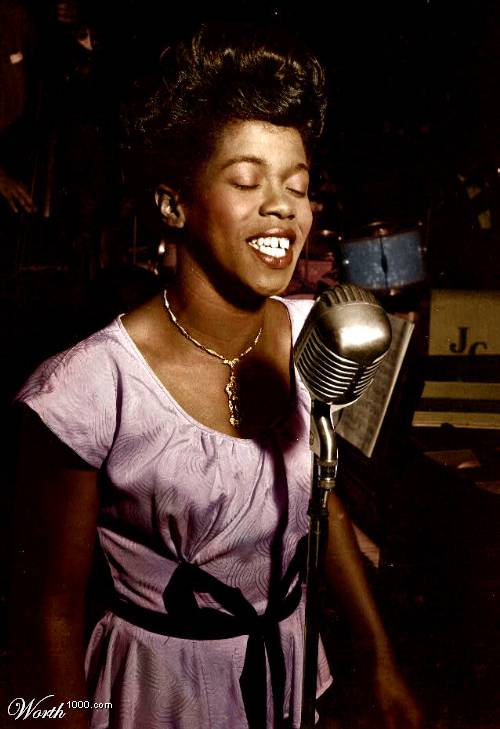 Sassy Sarah Vaughan “manhandles” the song and gives a bebop scat clinic. The band (Roland Hanna – piano, Joe Pass - guitar, Andy Simpkins – bass, Harold Jones - drums) starts off at a breakneck pace. You know it’s a Sassy record, so you expect vocals but, damn, not at that tempo! And guess what? There are no vocals in the sense of lyrics. It’s a scat treatment from hole to edge, a vocalization that only someone of Sassy’s impeccability would dare accomplish: a high dive with a quadruple backflip, twisting flat out before jackknifing and entering the water cleanly with nary a splash. She makes Stanley Jordan sound slow and clumsy as a milkhorse trying to run the Derby. Of course, Jordan is no slouch – he’s smooth, but he’s not as fleet as Sassy is.
Sassy Sarah Vaughan “manhandles” the song and gives a bebop scat clinic. The band (Roland Hanna – piano, Joe Pass - guitar, Andy Simpkins – bass, Harold Jones - drums) starts off at a breakneck pace. You know it’s a Sassy record, so you expect vocals but, damn, not at that tempo! And guess what? There are no vocals in the sense of lyrics. It’s a scat treatment from hole to edge, a vocalization that only someone of Sassy’s impeccability would dare accomplish: a high dive with a quadruple backflip, twisting flat out before jackknifing and entering the water cleanly with nary a splash. She makes Stanley Jordan sound slow and clumsy as a milkhorse trying to run the Derby. Of course, Jordan is no slouch – he’s smooth, but he’s not as fleet as Sassy is.
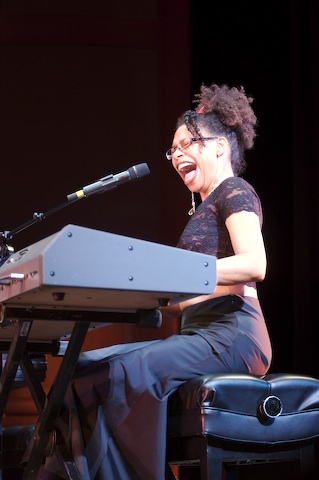 Now Rachelle Ferrell also has a version that is quirky and experimental, even though it’s built on the classic Cannonball arrangement. The band is Wayne Shorter – saxophone, Michel Petrucciani – piano, Stanley Clarke – bass, Lenny White – drums with Pete Levin and Gil Goldstein – synthesizers. As strong as those cats are, it’s Rachelle’s show and she pulls out all the stops. Some will find this kind of interpretation more showboating than sensitive, but no one can doubt that sister-lady can sang and has an amazing voice (in spades). The album is simply called First Instrument.
Now Rachelle Ferrell also has a version that is quirky and experimental, even though it’s built on the classic Cannonball arrangement. The band is Wayne Shorter – saxophone, Michel Petrucciani – piano, Stanley Clarke – bass, Lenny White – drums with Pete Levin and Gil Goldstein – synthesizers. As strong as those cats are, it’s Rachelle’s show and she pulls out all the stops. Some will find this kind of interpretation more showboating than sensitive, but no one can doubt that sister-lady can sang and has an amazing voice (in spades). The album is simply called First Instrument.
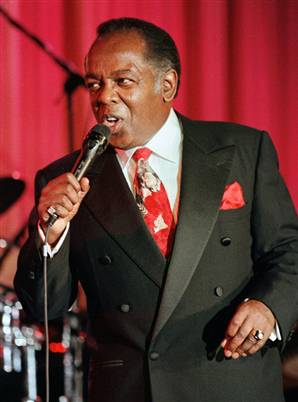 Finally, I’m kicking in a brief but rousing big band version by Mr. Lou Rawls from his album Soulin’. Arranged and conducted by H. B. Barnum, Soulin’ was very, very popular during its hey day. It’s a swinging little something-something that amply illustrates another approach in a jazz vein.
I’m going to stop now. This could go on from now to winter and we would still have versions left. Suffice it to say, after listening to all twelve of them, I’m still thoroughly amazed by what Sarah Vaughan did.
—Kalamu ya Salaam
Finally, I’m kicking in a brief but rousing big band version by Mr. Lou Rawls from his album Soulin’. Arranged and conducted by H. B. Barnum, Soulin’ was very, very popular during its hey day. It’s a swinging little something-something that amply illustrates another approach in a jazz vein.
I’m going to stop now. This could go on from now to winter and we would still have versions left. Suffice it to say, after listening to all twelve of them, I’m still thoroughly amazed by what Sarah Vaughan did.
—Kalamu ya Salaam
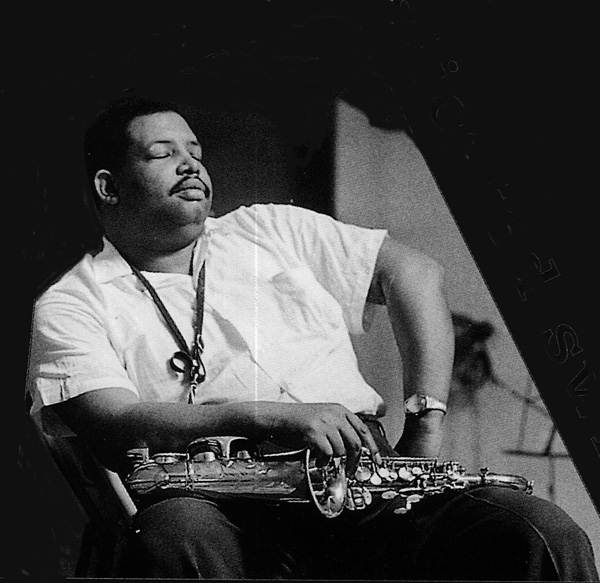 P.S. I lied. I didn’t mean to, but Mtume and I just had a phone conversation. He had more he wanted to say and a few other versions he thought about using and…well, maybe he’ll add his own postscript. As for me, since we’ve thrown everything else in, we might as well drop the kitchen sink, i.e. “THE” (ultra-classic) version: Cannonball’s version—this is the first time in nearly two years we’re repeating a track, but in this case (and with apologies for contradicting Mtume's caution about overloading the jukebox) I just could not help myself.
P.S. I lied. I didn’t mean to, but Mtume and I just had a phone conversation. He had more he wanted to say and a few other versions he thought about using and…well, maybe he’ll add his own postscript. As for me, since we’ve thrown everything else in, we might as well drop the kitchen sink, i.e. “THE” (ultra-classic) version: Cannonball’s version—this is the first time in nearly two years we’re repeating a track, but in this case (and with apologies for contradicting Mtume's caution about overloading the jukebox) I just could not help myself.
This entry was posted on Sunday, April 22nd, 2007 at 2:31 am and is filed under Cover. You can follow any responses to this entry through the RSS 2.0 feed. You can leave a response, or trackback from your own site.
3 Responses to “DUKE ELLINGTON / “Autumn Leaves””
April 22nd, 2007 at 5:22 pm
Dear BOL “team”, yes, this is a song coming from France… It’s well known sung by Yves Montand (who never accepted to sing the English version, probably the reason why you chose Piaf instead) but there are so many different versions (Wikipedia states 600…). Montand sang it in a movie in 1946, although he’s probably not the 1st one to record it.
Prevert was a great poet… His text is simply flowing along the music (that started as ballet music !)
The tribute Serge Gainsbourg wrote to this song is another jewel too…
More info :
http://fr.wikipedia.org/wiki/Les_Feuilles_mortes
http://en.wikipedia.org/wiki/Autumn_Leaves_%28song%29
Sincerely
DJM
June 4th, 2007 at 4:11 pm
No idea who is the singer from the sample of ColdCut? I really like that version.
Mtume says:
Her name is Janis Alexander. She sang on several tracks from Coldcut’s 1993 album, Philosophy. I dunno anything else about her.
November 27th, 2007 at 2:33 pm
There is a poignant version by the great Mabel Mercer that is my personal favorite . I’ve not heard it in years but as I remember (or mis-remember) it she sings the lyric in both French and English. It’s a haunting version which is available these days I believe on the cd re-issue of her double album entitled The Art of Mabel Mercer.
Leave a Reply
| top |